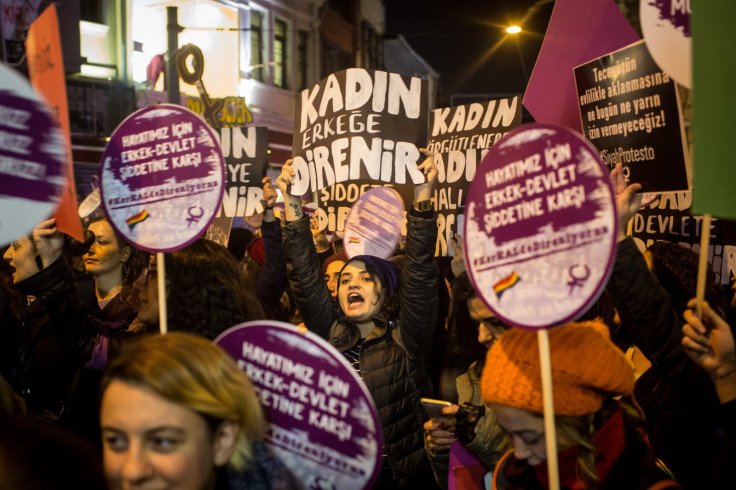Istanbul Convention: Five things to know about the 'gold standard' of gender violence legislation
MPs will vote on a groundbreaking international treaty on domestic violence today.

MPs have voted to back a private member's bill to enshrine an international treaty on domestic violence into British law today.
Described by UN women as a "gold standard", the Council of Europe Convention on preventing and combating violence against women and domestic violence – known as the Istanbul Convention – is a landmark piece of legislation which would have a major impact on tackling violence against women.
The bill has now passed its second reading and will have to receive a third reading by MPs before it can become law.
Here are five key facts about the treaty.
What would it do?
If passed, the British Government will be obliged to guarantee funding for shelters, rape crisis centres, helplines and sex- and relationship education in schools. Although the UK Government signed the Istanbul Convention in June 2012, it has yet to ratify it, which would make it legally binding.
The timing of the vote is particularly poignant. Last week, an analysis of violence against women in England and Wales revealed more than 900 women were killed by men over a six-year period. Between 2009 and 2015, the Femicide Census found 64% of women were killed by current or former partners, with 8% killed by their sons.
In England and Wales, two women are killed by a current or former male partner, according to the Office for National Statistics (ONS).
What does it say?
The Council of Europe convention states that "it is the obligation of the state to fully address" violence against women "in all its forms", take measures to prevent it, protect its victims and prosecute perpetrators.
Does the convention tackle the prevention of violence?
Yes. Governments bound by the Convention will have to do the following to prevent violence against women:
- Train professionals in close contact with victims
- Run awareness-raising campaigns
- Tackle gender equality and non-violent conflict resolution in interpersonal relationships in education
- Set up treatment programmes for perpetrators of domestic violence and for sex offenders
- Work with NGOs
- Involve the media and the private sector in eradicating gender stereotypes and promoting mutual respect
What about violence against migrant women, asylum seekers and refugees?
There is an entire chapter dedicated to the protection of these women, who are particularly vulnerable to violence. The Istanbul Convention introduces the possibility of granting migrant women, who are victims of domestic violence and whose residence status depends on that of their spouse or partner, with their own residence permit when the relationship ends.
Who has already ratified the convention?
Twenty-two countries, including France, Italy and Sweden, have already ratified the treaty.
© Copyright IBTimes 2024. All rights reserved.






